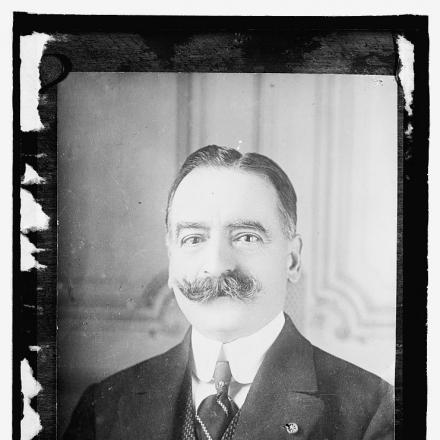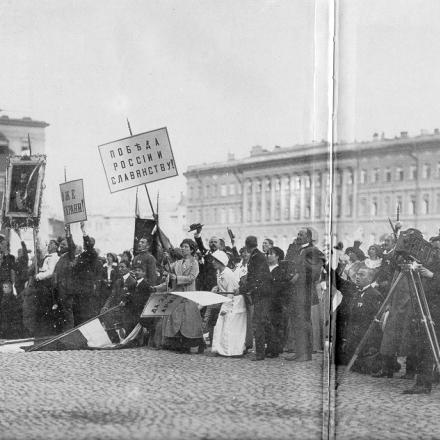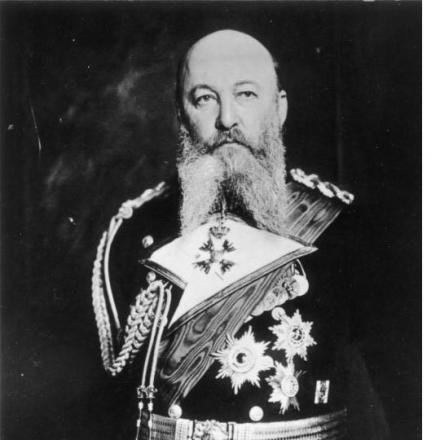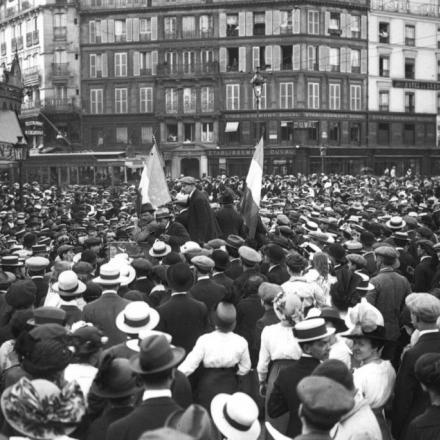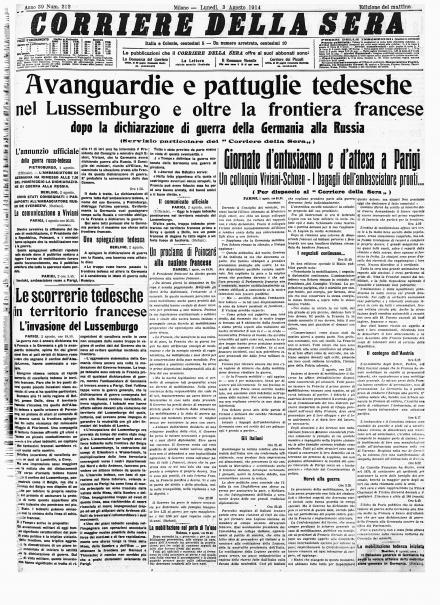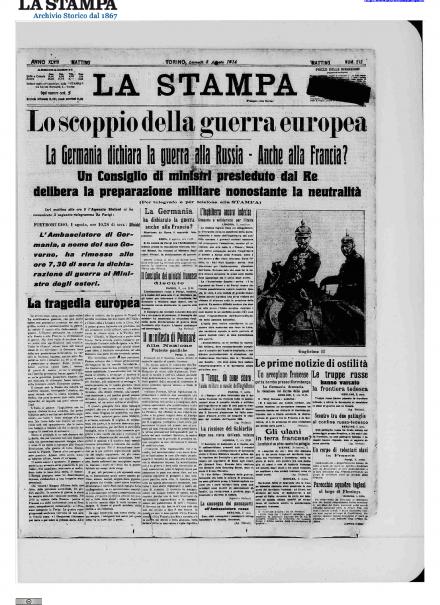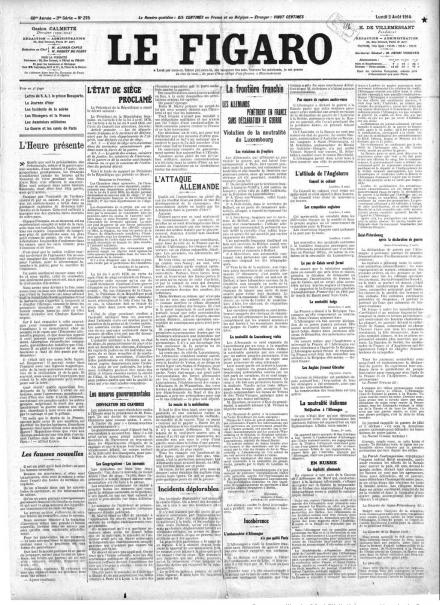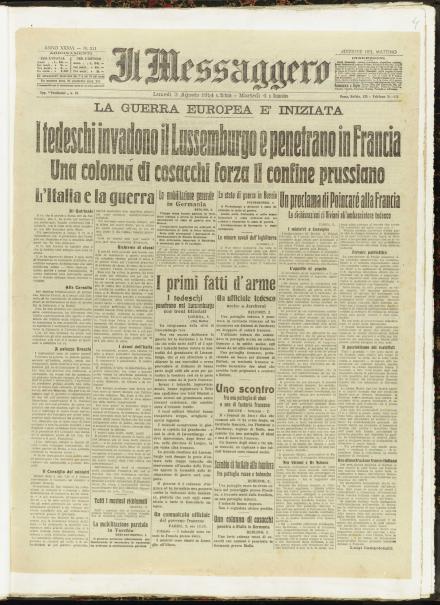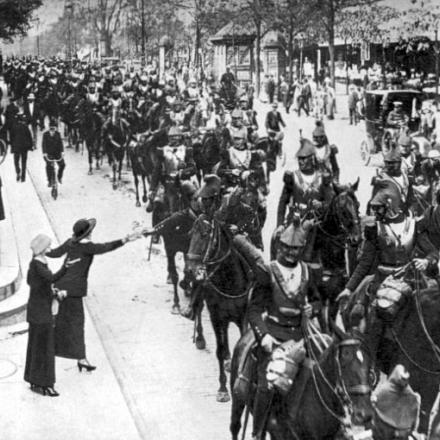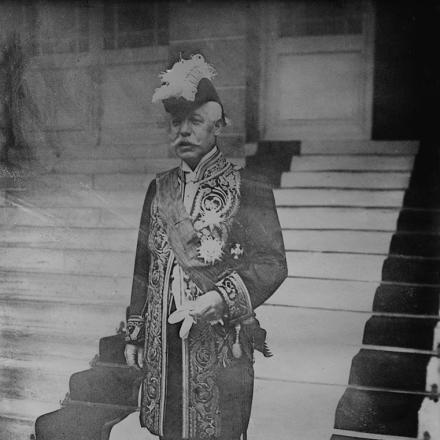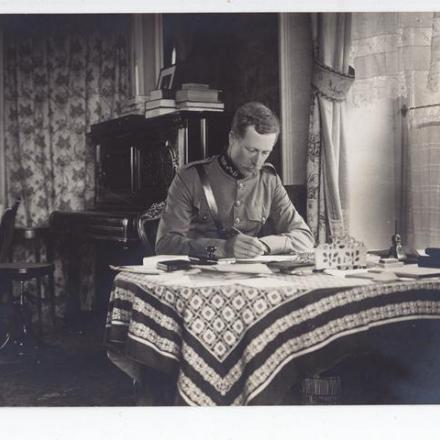Orgoglio belga
Il Belgio non si piega. La mattina del 3 agosto rifiuta l’ultimatum tedesco e avvisa la Gran Bretagna. Berlino è sorpresa, scommetteva su un inspiegabile menefreghismo di Bruxelles.
Londra è garante della neutralità belga dal 1839. Irritata, chiede spiegazioni “soddisfacenti” ai tedeschi. L’ultimatum scadrà alle 23:00 del giorno dopo.
La Germania ha appena dichiarato guerra anche alla Francia, ma è la questione britannica al centro del dibattito. Il Cancelliere Bethmann-Hollweg non si fa illusioni; l’intervento della Gran Bretagna è inevitabile.
Il più preoccupato in Germania, uno dei pochi, è il Ministro della marina Alfred von Tirpitz. Avrebbe commentato laconico e sconsolato: «Allora tutto è perduto».
Nell’estate del 1914 i tedeschi vantano senza dubbio il miglior esercito. Nonostante stiano puntando tutto sulla Francia, le truppe schierate sul fronte orientale riescono comunque ad avanzare in Polonia. Le armate russe non sono pronte per la guerra; per ora non rappresentano una minaccia reale, nonostante lo sconfinamento in Prussia.
Intanto i serbi continuano a resistere. I combattimenti contro gli austro-ungarici si concentrano sul fiume Drina.
In tutta Europa gli episcopati benedicono i soldati in partenza; mentre in Vaticano Papa Pio X può solo ordinare preghiere per la pace universale.
Davide Sartori
GLI AVVENIMENTI
Politica e società
- La Germania dichiara guerra alla Francia. L’Ambasciatore tedesco lascia Parigi e quello francese Berlino.
- Il Belgio rifiuta le richieste tedesche. Il Re Alberto fa appello a Re Giorgio V d’Inghilterra per un intervento diplomatico che salvaguardi l’integrità del Belgio.
- La Gran Bretagna garantisce supporto armato al Belgio nel caso la Germania violi la sua neutralità. Grandi folle a Whitehall a sostegno della guerra.
- Il Governo britannico emette un mandato che autorizza la requisizione delle navi.
- Lo Zar chiama il popolo russo alla guerra.
- Il Granduca Nicola Nicolajevic è nominato Capo supremo dell'esercito russo.
- Il controllo dei porti canadesi di Montreal e Quebec passa alle autorità militari. La milizia canadese viene chiamata alle armi e i riservisti si preparano a salpare per l’inghilterra.
Fronte occidentale
- Luneville viene bombardata dall’aviazione tedesca.
Fronte orientale
- Schermaglie vicino Libau, in Lettonia.
- La Germania assedia tre città nella Russia polacca.
Fronte meridionale
- Austro-ungarici e serbi combattono lungo il fiume Drina.
Multimedia
Il Discorso di Edward Grey al Parlamento inglese
L'entrata in guerra della Gran Bretagna
Parole d'epoca
La dichiarazione di guerra della Germania alla Francia
Consegnata dall'Ambasciatore tedesco a Parigi Sciioen
M. Le President,
The German administrative and military authorities have established a certain number of flagrantly hostile acts committed on German territory by French military aviators.
Several of these have openly violated the neutrality of Belgium by flying over the territory of that country; one has attempted to destroy buildings near Wesel; others have been seen in the district of the Eifel; one has thrown bombs on the railway near Carlsruhe and Nuremberg.
I am instructed, and I have the honour to inform your Excellency, that in the presence of these acts of aggression the German Empire considers itself in a state of war with France in consequence of the acts of this latter Power.
At the same time, I have the honour to bring to the knowledge of your Excellency that the German authorities will retain French mercantile vessels in German ports, but they will release them if, within forty-eight hours, they are assured of complete reciprocity.
Documenti diplomatici
LA RISPOSTA DEL BELGIO ALLA GERMANIA
Consegnata dal ministro degli esteri belga M. Davignon all'ambasciatore tedesco a Brixelles von Below Saleske.
3 August 1914
This note has made a deep and painful impression upon the Belgian Government. The intentions attributed to France by Germany are in contradiction to the formal declarations made to us on August 1, in the name of the French Government.
Moreover, if, contrary to our expectation, Belgian neutrality should be violated by France, Belgium intends to fulfil her international obligations and the Belgian army would offer the most vigorous resistance to the invader.
The treaties of 1839, confirmed by the treaties of 1870 vouch for the independence and neutrality of Belgium under the guarantee of the Powers, and notably of the Government of His Majesty the King of Prussia.
Belgium has always been faithful to her international obligations, she has carried out her duties in a spirit of loyal impartiality, and she has left nothing undone to maintain and enforce respect for her neutrality.
The attack upon her independence with which the German Government threaten her constitutes a flagrant violation of international law. No strategic interest justifies such a violation of law.
The Belgian Government, if they were to accept the proposals submitted to them, would sacrifice the honour of the nation and betray their duty towards Europe.
Conscious of the part which Belgium has played for more than eighty years in the civilisation of the world, they refuse to believe that the independence of Belgium can only be preserved at the price of the violation of her neutrality.
If this hope is disappointed the Belgian Government are firmly resolved to repel, by all the means in their power, every attack upon their rights.
